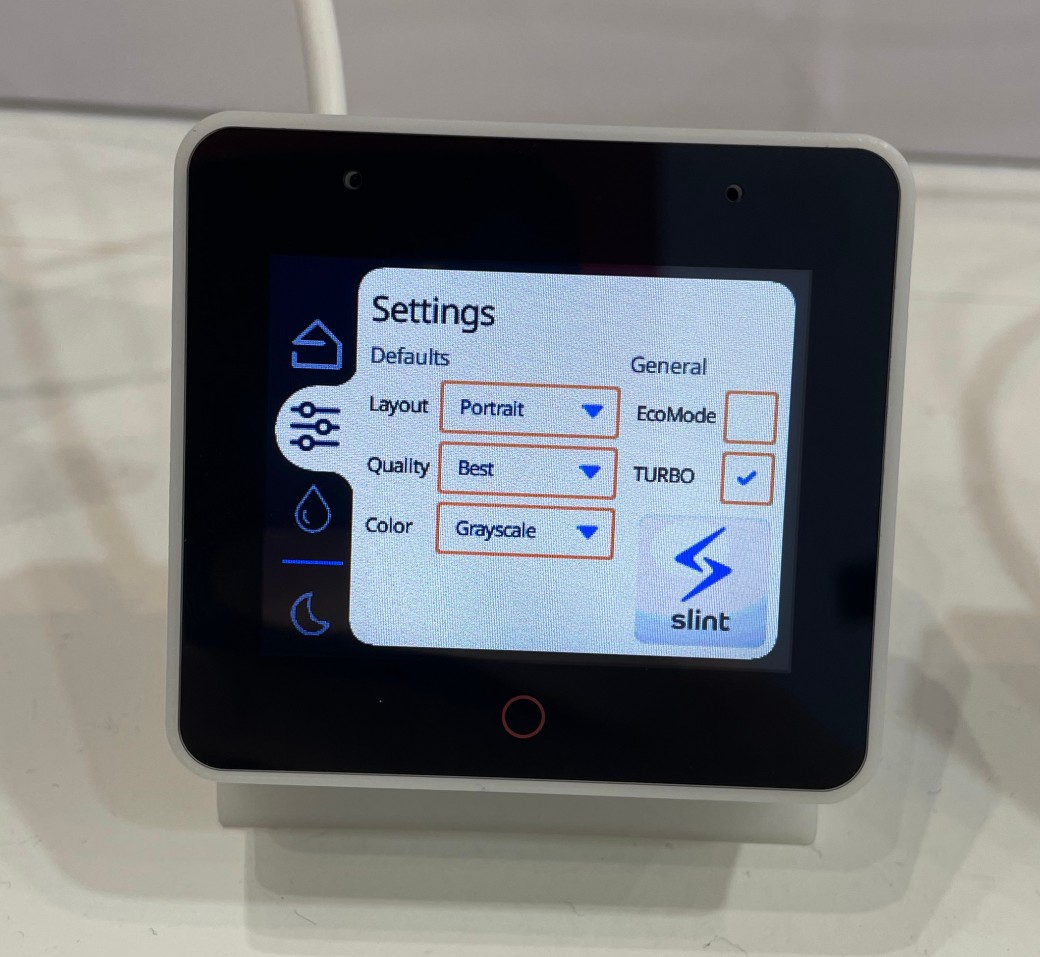# Slint
[](https://components.espressif.com/components/slint/slint)
Slint is a declarative GUI toolkit to build native user interfaces for desktop and embedded applications written in Rust, C++, or JavaScript.
This component provides the C++ version of [Slint](https://slint.dev/) for the [Espressif IoT Development Framework](https://docs.espressif.com/projects/esp-idf/en/latest/esp32/index.html).
It has been tested on ESP32-S3 devices.

## Usage
By using this component, the `Slint::Slint` CMake target is linked to your application and you can access the entire functionality of the
[Slint C++ API](https://slint.dev/docs/cpp).
In addition, this component provides the `slint_esp.h` header file, which provides a `EspPlatform` class, based on
[ESP LCD Touch](https://components.espressif.com/components/espressif/esp_lcd_touch). It implements the `slint::platform::Platform` interface by
reading touch events and rendering to an attached screen via `esp_lcd_panel_draw_bitmap`.
Use this platform implementation by instantiating it with a `esp_lcd_panel_handle_t`, an optional `esp_lcd_touch_handle_t`, and a pointer to one
or two `slint::platform::Rgb565Pixel` frame buffers. Next, register the instance with the Slint run-time library by calling `slint::platform::set_platform()`:
```cpp
static std::vector<slint::platform::Rgb565Pixel> single_buffer(BSP_LCD_H_RES * BSP_LCD_V_RES);
slint::platform::set_platform(
std::make_unique<EspPlatform>(slint::PhysicalSize({ BSP_LCD_H_RES, BSP_LCD_V_RES }),
panel_handle, touch_handle, single_buffer));
```
Alternatively, you can implement your own sub-class of `slint::platform::Platform` to drive the screen and handle input events.
Next, integrate your `.slint` files into the build by compiling them to C++ and linking them to your component:
```cmake
slint_target_sources(${COMPONENT_LIB} my_application_ui.slint)
```
Instantiate the Slint component by including the generated header file (`my_application_ui.h` in the above example), call `create()`
on the generated class and `run()` to spin the event loop:
```cpp
#include "my_application_ui.h"
/// ...
auto my_application_ui = MainWindow::create();
my_application_ui->run();
```
## License
You can use Slint under ***any*** of the following licenses, at your choice:
1. [GNU GPLv3](https://github.com/slint-ui/slint/blob/master/LICENSES/GPL-3.0-only.txt),
2. [Paid license](https://slint.dev/pricing.html).
See also the [Licensing FAQ](https://github.com/slint-ui/slint/blob/master/FAQ.md#licensing).
Slint is also available with a third license (Royalty Free) for desktop applications.
## Links
[Website](https://slint.dev) · [GitHub](https://github.com/slint-ui/slint) · [Docs](https://slint.dev/docs/cpp)